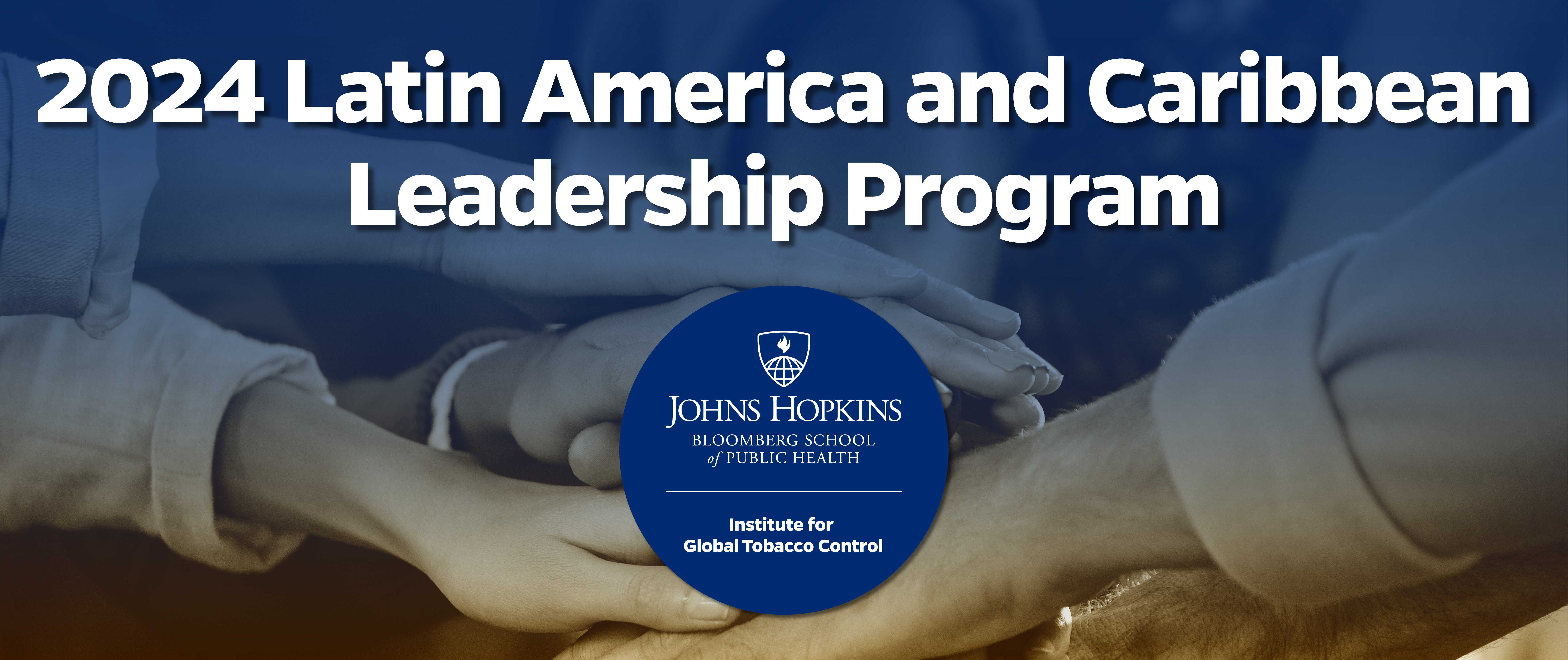2024 Latin America and Caribbean Leadership Program Homepage

The 2024 Latin America and Caribbean Tobacco Control Leadership Program welcomes you to this comprehensive one-week initiative designed to strengthen leadership skills and capabilities in advancing tobacco control policy development and implementation. It is structured around the key components of the WHO's MPOWER package, which aims to reduce the demand for tobacco use.
About the Program:
As part of the Bloomberg Initiative (BI) to Reduce Tobacco Use, the Tobacco Control Leadership Programs conducted by the Institute for Global Tobacco Control (IGTC) at the Johns Hopkins Bloomberg School of Public Health aim to develop and enhance leadership in countries and regions experiencing the greatest burden of disease and death from tobacco use by building capacity to develop and implement effective tobacco control policy interventions.
Across Latin America and the Caribbean, varying degrees of progress have been made in tobacco control policy development and implementation. While some countries have made substantial progress, the tobacco industry continues to interfere with policy development and implementation. In addition, there is on-going concern in several countries about the economics of tobacco control; illicit trade in tobacco products; tobacco advertising, promotion, and sponsorship; the regulation of electronic cigarettes and heated tobacco products; and the need for stronger enforcement of tobacco control legislation. The 2024 Latin America and Caribbean Tobacco Control Leadership Program, developed by IGTC in consultation with the National Institute of Public Health (INSP) in Mexico and other BI partner organizations, leverages the insights and expertise of faculty and country participants to address these issues.
Upon completion of the program, participants will:
- Have enhanced leadership capacity and systems thinking skills that result in better advocacy promoting the enactment and effective implementation of policy change aimed at reducing tobacco use.
- Be able to apply effective leadership principles in day-to-day work.
- Have strengthened communication skills in audience segmentation and audience-centric messaging.
- Have strengthened ties and linkages with national and international colleagues involved in tobacco control.
Program Resources:
- Agenda
- Workbook (English)
- Workbook (Español)
- Introduce Yourself
- Upload Your Photos
- Program Evaluation
Contact Information:
Steve Tamplin (English only)
- Email: stampli1@jhu.edu
- Cell phone: +1 304 671 4300
Luz Myriam Reynales Shigematsu (Spanish/English)
- Email: lreynales@insp.mx
- Cell phone: +52 777 328 2912
Joanna Blanch García (Spanish/English)
- Email: cisp49@insp.mx
- Cell phone: +52 777 1281324